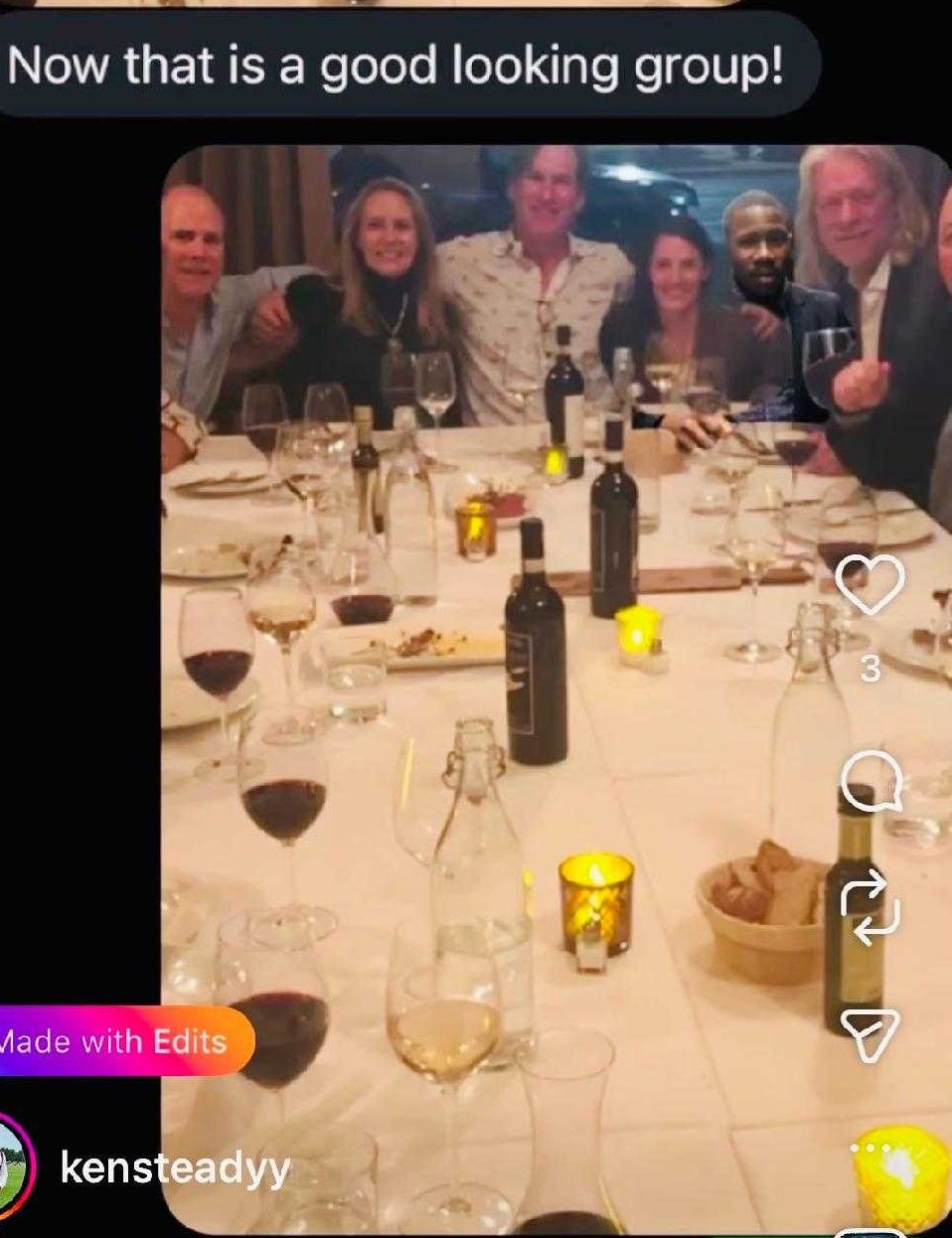The horrifying side to the 'mail-order bride' industry — some men aren't exactly looking for love.
These marriages aren't always a bad thing, but when they are, they really are.
Oksana thought she'd met a kind man when Carl came to see her in the Ukraine.
But by her third month with him in America on a fiancee visa, Oksana Makarova was starting to suspect she'd made a big mistake. He'd begun tracking her ovulation during those first months she'd moved to be with him. He was hell-bent on impregnating her as soon as possible. He dyed her toddler son's blond hair black without her consent. He wouldn't give her a key to the house, reminding her when she asked for one that she had no one to visit and no reason to leave the house.
"Oksana, I thought you'd be obedient. This is the impression you gave me in Ukraine."
Image via iStock.
That's the line he would break out whenever he needed to put her back into her place. And as you can guess, he soon turned violent. Luckily, Oksana's story (told originally and in its entirety in Marie Claire) ended fairly well. She and her children safely moved out on their own, citizenships attained, and with primary custody given to Oksana. But it's not always the case for women who suffer the worst outcomes as "mail-order brides," as they're commonly (if somewhat insultingly) referred to.
The international marriage industry may inadvertently produce circumstances that can position a person as an ideal victim.
As mentioned in the first installment in this look at the international marriage industry, there are some very legitimate, understandable, and downright sweet love stories that can emerge from the practice. But what happens when a disturbed kind of man, put off by what he perceives as independent or hard-to-get women in America, turns to services where he thinks he can procure and isolate a "subservient" woman to yield to his more harmful tendencies?
Before heading to mixers where men assemble with the bride-finding company, hopeful women spend time beautifying. GIF from "Love Translated."
First, let's consider the motivations involved in how men and women meet in these kinds of matchmaking services. In some cases, the women, like Ekaterina from the first installment, can be already in a good place in life and generally happy; they're just seeking love, travel, and adventure. But sometimes, like in Oksana Makarova's case, there are women drawn to the matchmaking services because of a desperate need to provide for themselves and their children or to escape a dire situation in their home country.
That's the first indicator that major power imbalances between the two people are afoot.
That uneven distribution of power comes into focus again when the men and women meet at mixers planned by the matchmaking agencies. The agency Oksana used had the women line up to be evaluated and maybe chosen for an interview by a man.
The courtship, if it proceeds, may continue for awhile with the "bride" communicating long distance from her home country, or she and her suitor may apply for a fiancee visa so that she can go to America. Often, once she is in America, she is quite dependent on a guy she may not know very well and who may very well have been spurred to seek her out in the first place because of misogynistic tendencies.
This is the second obvious marker of that aforementioned power imbalance. There are language barriers, deportation worries, and financial concerns that all serve to place an international bride-to-be in a pretty precarious position.
Furthermore, in a place far away from home, if she's been successfully isolated by her new fiance or husband, it's very difficult for her family and friends abroad to verify her well-being or to report her missing in a worst-case scenario.
These situations have all the precursors to produce the perfect victims for the kind of person who looks to victimize — and like all of us, it's really just a roll of the dice if you will find yourself matched and then entangled with such a person.
There is the story of Gary Swierski, a California man who repeatedly reeled in foreign women through pen pal services and dated immigrants already living in America, serially and savagely abusing one after the other. He was finally turned in by his daughter, whom he'd forced to help dispose of the body of his second wife, Reina Swierski, after he killed her. It caused investigators to reopen the case of a former girlfriend of his who suspiciously drowned during a night out with him more than a decade earlier.
L: Gary Swierski. R: Reina Swierski, Gary's second wife and murder victim. Image from Sunnyvale Police Department/public domain.
After a string of disturbingly similar murder cases involving marriages started through international marriage brokers, the United States passed the International Marriage Broker Regulation Act (IMBRA) in 2005. It stipulates that background checks must be run on U.S. citizens before they communicate through the services to potential women. But the law is easy to circumvent — all the company has to do is base itself outside the United States to not have to comply.
The gray area between international marriages and human trafficking gets murky sometimes.
National Organization for Women's Sonia Ossorio told Bloomberg in 2011, "The mail-order bride industry is a softer version of human trafficking."
"You take a beautiful woman from the Czech Republic and you bring her into your home, she does all your cooking and cleaning and ironing. At the end of the day, the [wife's] service is free."
And national experts agreed. In 2004, before Congress passed IMBRA, John R. Miller (then-director of the State Department's Office to Monitor and Combat Trafficking in Persons) clearly connected the dots between human trafficking and international marriage practices:
"I want to focus, if I can, on the worldwide perspective here. When you look at the slavery issue, we now have reason to believe that 80 percent of the millions that are in slavery, internal or external traffic victims, 80 percent are women and 50 percent are children. The two biggest categories are sex slavery and probably domestic servitude. I think these are two of the categories of slavery that you frequently have... What do we know about trafficked victims in general? Well, there are two or three characteristics. There is the vulnerability of the victims. ... There is the deception, the key tool of the traffickers, and often there is government complicity and corruption. Well, if you look at marriage brokering, you have these features, particularly the first two features, the vulnerability of the women and the deception involved. These are features that we have to deal with."
Pair that testimony with this excerpt and quote from an international marriage agency founder featured in Bloomberg, and the connection really begins to emerge:
"For some companies, such submissiveness is a selling point. Hand-In-Hand's website trumpets the fact that its females are 'unspoiled by feminism.' Company founder Weiner argues this form of chauvinism — like the mail-order bride business itself — is economically motivated. 'You take a beautiful woman from the Czech Republic and you bring her into your home, she does all your cooking and cleaning and ironing,' he says. 'At the end of the day, the service is free.' Hand-In-Hand estimates the potential savings of a homemaking wife at $150 per week."
And then there are the times would-be brides (and potentially their children) are duped into sex slavery. John R. Miller told of one such case in his 2004 deposition to Congress regarding IMBRA.
"Pou was 17 when a man came to her village and arranged through her sister to marry her. Shortly after the marriage, the man took Pou to a fishing village and sold her to a brothel. After years of abuse and torment, Pou was released by the brothel. Today her body is ravaged by disease, and this woman in her 20s looks decades older than her real age. Yet she wants her story told."
Clearly, there is a very real concern about the welfare of women who participate in international marriage arrangements.
And to be fair, there are also cases reported of the seemingly perfect, caring woman bilking lonely bachelors out of significant money and property and then disappearing. But since that's money, and not physical safety, again the risk-to-reward ratios are highly skewed between them.
Even in the less egregious, non-abusive situations, there is a lot to explore in the dynamics of modern society that cause some men to look to a more transactional, surefire method of selecting a life partner. Some bride-seekers are decent guys with extenuating circumstances that necessitate going outside of traditional dating. But...
Some men really just don't like how feminism is changing their world and all it entails for them.
As noted previously, some men are seriously averse to feminism and the shifting paradigm (or at least the effort to shift paradigms) to more equitable relationships.
To men who may struggle with that shift, the cultural dissonance manifests itself in various ways. There are countless OKCupid and Tinder horror stories from women who "swiped right" on a guy's profile only to have him go from seemingly nice to combative and bitter in minutes, all because she didn't display the desired level of enthusiasm at his advances.
Photo by Paul Zinken/picture-alliance/dpa/AP Images.
There are also "pickup artist" (PUA) forums, where men who don't hold with that "feminism crap" convene and share tips for getting women to respond to them.
The prevailing attitude in such virtual meeting places is that women are all similar enough, and universal reactions can be provoked from them if only you employ the right tactics, as if you're entering code into a computer. They even organize in-person events, where they hire marketers to recruit young women to attend, often under the guise that it's a free networking event. All the while, it's really a training ground for men who've paid good money to try out their newly acquired "skills" in manipulating women, with an experienced "guru" to encourage them in the wings. You just have to learn the right combination of psychological buttons to push on a woman to get them to comply with your wishes! It's a sadly reductionist coping outlet for the subsection of men who seem to struggle with one concept: Women are human beings who are complex and don't come with a guarantee — they're not vending machines and love isn't transactional.
None of this even touches yet on the way that toxic and twisted misconception of masculinity manifests when the Elliot Rodgers of the world shoot innocent people because girls reject them, and jilted high schoolers stab girls for saying no to being their prom date.
It's easy to see how a man who hasn't been taught that interacting with women is like interacting with any other human could progress through the various stages of frustration at his ever-calcifying ineptitude. And he might be attracted to a transactional kind of arrangement with a woman he perceives as powerless — his path of least resistance.
A few thousand dollars is easier to pull together than untangling decades of one's societal misogynistic programming, after all.
There's no easy answer to whether the international marriage industry is a net positive or a net negative.
In the end, an online tool or agency of any kind is only as good as the people using it and the safeguards it implements to protect regular users from the worst. In a world where hatred toward women isn't always actively discouraged, and companies don't always play by the rules, it can be a high-risk gamble to look for a love connection across the world in a place where one has no support system.
For some, like Ekaterina and Josh, it pays off and produces a beautiful new life together. But when enough people get unlucky matches with the worst outcomes, we have to evaluate where things went so devastatingly wrong and how it can be changed for the better.



 In a 4-day model, kids often (but not always) receive less instructional time. Photo by
In a 4-day model, kids often (but not always) receive less instructional time. Photo by 
 Xennial woman with her Boomer
Xennial woman with her Boomer  A Xennial son spends time with his Baby Boomer parent.
A Xennial son spends time with his Baby Boomer parent. A Xennial son goofs around with his Baby Boomer dad.
A Xennial son goofs around with his Baby Boomer dad.

 A modern bathroom. Photo by
A modern bathroom. Photo by 
 Kendrick Constant photoshops himself into a group photo. Photo Credit: Kendrick Constant
Kendrick Constant photoshops himself into a group photo. Photo Credit: Kendrick Constant Kendrick Constant has dinner with his friend Beck.Photo Credit: Kendrick Constant
Kendrick Constant has dinner with his friend Beck.Photo Credit: Kendrick Constant